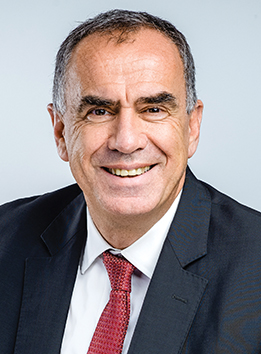Verallia pulls off clear success with long-desired IPO
Benefiting from growing consumer demand to move away from plastics, French glass maker Verallia has achieved the largest French IPO since 2017, as David Wigan reports.
Glass is having a moment. It is less destructive than plastic, made from natural substances and can be endlessly recycled. For consumers seeking to live a more environmentally friendly lifestyle, glass is a preferred option. This shift in sentiment is having an impact on industry, and French glass bottle maker Verallia has had a great 2019, which it capped in October with a successful initial public offering (IPO).
Verallia, controlled since 2015 by US investment company Apollo and Bpifrance, is the world’s third largest producer of glass packaging for drinks and food and the largest in Europe. In 2018, it produced nearly 16 billion glass bottles and jars for clients such as drinks maker Pernod Ricard, champagne house Dom Pérignon and chocolate spread maker Nutella.
The company has seen a significant turnaround in its business over the past few years. Back in 2011 – when the anti-plastic movement was still in its infancy – it was forced to abandon a planned IPO, amid concern over its exposure to a highly competitive US market and a shaky global economy.
Positive environment
Now the company has exited the US and is operating in an environment that is poles apart from the situation of eight years ago. In the nine months to the end of September 2019, Verallia posted revenue growth of 7.2% to reach €1.98bn, and increased its adjusted earnings before interest, tax, depreciation and amortisation (Ebitda) margin to 24.2%, compared with 23% over the first nine months of 2018. The business is strongly cash generative and the company has pursued a programme of deleveraging since the Apollo takeover. Net debt was 2.7 times adjusted Ebitda for the 12 months to the end of September, compared with 3.3 times adjusted Ebitda a year previously.
“The company is fundamentally strong, cash generative and we are deleveraging at about half a turn a year,” says Didier Fontaine, chief financial officer at Verallia. “The market is healthy because of the huge demand for glass, which means we are growing and are able to pass on rising costs. We are also investing heavily to preserve, maintain and develop our production tools. Our objective is to become more productive and we think, like the automotive world, we can go much further in that regard.” The company posted a net reduction in production costs of €29m over the first nine months of 2019.
Verallia targets leverage of between two and three times adjusted Ebitda, which means it is likely in the coming period to stop cutting debt and turn to merger and acquisition opportunities or returning cash to shareholders, according to Mr Fontaine. Subject to the approval of the company’s annual general shareholders’ meeting, Verallia expects to distribute an annual dividend in 2020 of €100m for the 2019 year-end.
Fresh plans
Having withdrawn from a prospective IPO back in 2011, taking another shot at the public markets was always at the back of the minds of Verallia's senior managers. Also, Apollo was naturally keen to realise a return on its investment and to pare back its stake of about 90% in the company. Those ideas came to fruition in early 2019, when executives started planning for a Paris IPO later in the year, contingent on conditions being amenable.
The company mandated BNP Paribas, Citi and Deutsche Bank as global coordinators, which it expected would value Verallia at €5bn, including net debt of €1.8bn. Banco Santander, Barclays, Crédit Agricole, Credit Suisse, Raiffeisen and Société Générale were named as bookrunners.
“We did roadshows, investor days, non-deal roadshows and analyst days as we went out and told our story,” says Mr Fontaine. “However, the key question was [around] timing, which was not easy this year because of the higher level of volatility and the impact of trade tensions.”
Alongside the IPO the company did a refinancing of its debt-locking in about €1.5bn of syndicated unsecured bank loans and a $500m revolving credit facility, alongside a commercial paper programme. These combined cut its net interest costs to about 2% and realised a €20m reduction in annual financing charges. The IPO was the largest in France since 2017 and ended up pricing at €27 a share, which was at the low end of the €26.50 to €29.50 target range.
“The pricing was at the low end because of the wider market situation and the stock market index dropping, but overall we were very happy,” says Mr Fontaine. “We had a great spread of investors and the equity has performed very well in the secondary market, especially since we upgraded our profit target for year-end.”



